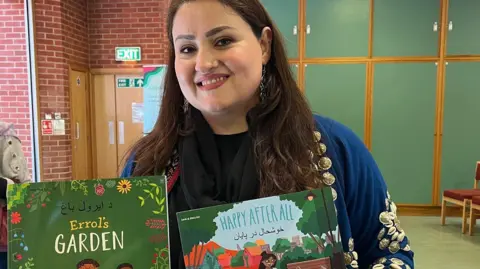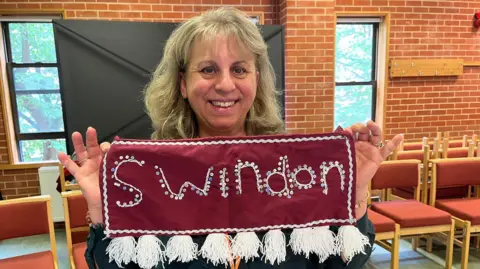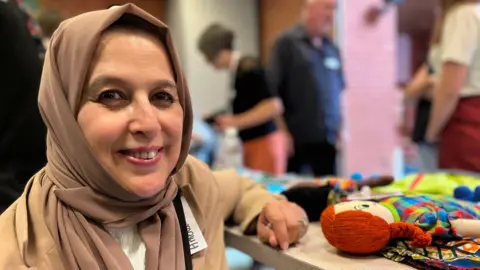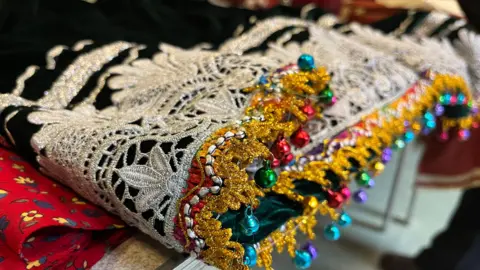
A project involving bilingual children’s storybooks and toy-filled sacks has helped refugees – many from Afghanistan – with developing English language skills.
The ‘Story Sack’ programme, put together by mostly female refugees in Swindon, Wiltshire, sees people read the same story in English and their native language. They are then offered bags with toys, clothes and teddy bears relating to the book.
Swindon Borough Council’s support officer Semra Heath set up a women’s group for Afghan refugees after noticing many were not regularly leaving home.
She explained that some had been educated, but others could not read their own language either.

“[Some] cannot read their own language. We are trying to teach English. It’s a difficult journey.
“It’s all about getting together, supporting each other,” she said.
While Ms Heath organises a variety of activities for her group, the story sacks brought refugees from all over the world, including Ukraine, together.

Amena Sadat was part of a team who sewed items for the sacks.
“It’ll be good to connect the children with each other. They will feel a part of this society, not isolated. Many children are busy with phones and laptops,” she said.
One of her favourite stories was one about a child bringing a community together with gardening.
“He was the main role to connect the families, to develop relationships and stay with each other,” she added.

Uzra Taqwa is from Afghanistan and knows multiple languages. She has been helping to translate the books for the project.
Her husband was at a UK defence academy when they needed to leave immediately, and there was “no chance of getting on a plane”.
They travelled to Pakistan and had to wait there for a month until their passage to the UK was confirmed.
She said the story sacks were really helpful for refugees when they arrive in the area and helps to continue to develop their England language skills.
Swindon primary school head teacher, Neil Griffiths, started the story sack idea 27 years ago, originally for schools, but has been pleased to see them being used more widely.
“To come and see just how they’ve interpreted story sacks while they work with refugees is just wonderful,” he added.
 Afghanistan Peace Campaign
Afghanistan Peace Campaign